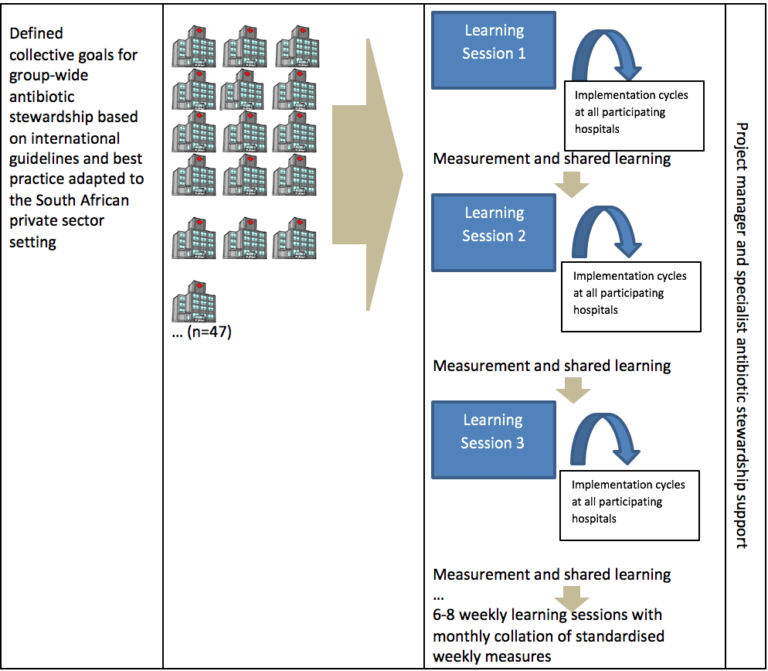Home / Healthcare & Medicine / Antimicrobial & Antibiotic Resistance / Antimicrobial Stewardship: Managing Antibiotic Resistance / The importance of co-ordination
This article is from the free online
Antimicrobial Stewardship: Managing Antibiotic Resistance


Reach your personal and professional goals
Unlock access to hundreds of expert online courses and degrees from top universities and educators to gain accredited qualifications and professional CV-building certificates.
Join over 18 million learners to launch, switch or build upon your career, all at your own pace, across a wide range of topic areas.

 Netcare antibiotic stewardship Breakthrough Series Collaborative approach for the group-wide implementation process
Netcare antibiotic stewardship Breakthrough Series Collaborative approach for the group-wide implementation process

